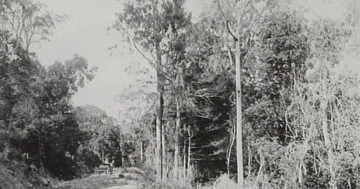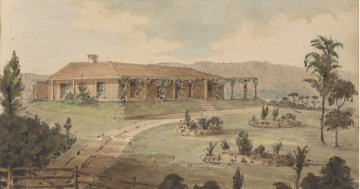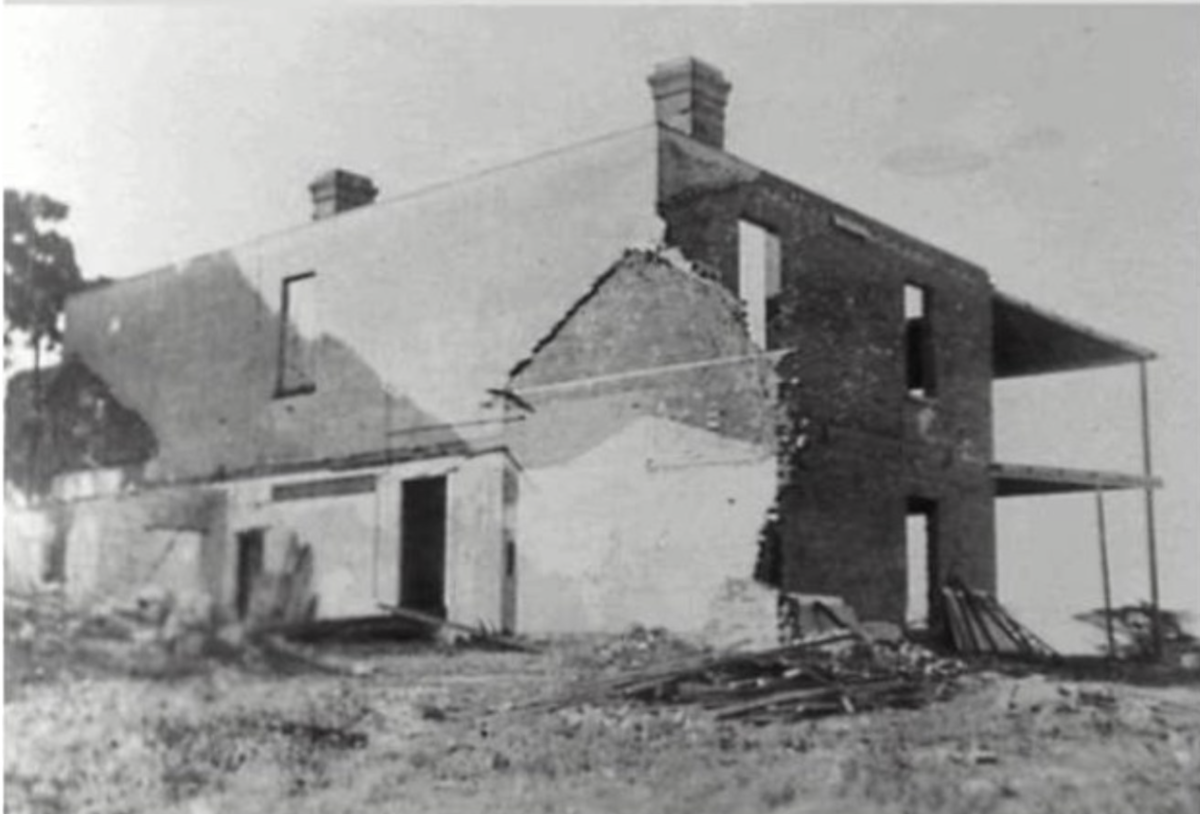
The Jenkins’ once fine Berkeley House eventually became a ruin. Photo: Wollongong City Library Collection.
Wollongong: 1000 acres (on the northern side of Lake Illawarra) granted to Robert Jenkins, 24 January 1817. Quit rent, £1. Commencing 24 January 1822. Granted by Lachlan Macquarie. Condition: To cultivate 75 acres, and not to sell for five years.
Robert Jenkins senior (born 1777) became an instant absentee Illawarra land owner in 1817.
However, after his tragic death by falling from a horse in 1822, his wife Jemima became the mistress of the family wealth and in the 1820s, had her Berkeley Estate in the charge of a manager named John Robinson.
Later William Faithfull (who had married Jemima Jenkins’ sister Susannah) and their son, William Pitt Faithfull (1806-1896) may have also done a bit of mostly absentee managing of the Lake Illawarra Berkeley property.
Conveniently, the Faithfull family became the owners of the fabulously rich Springfield estate about 15 km from Goulburn.
With wealth now abounding, the widowed Mrs Jemima Jenkins further added to her already large Berkeley estate by purchasing other smaller grants from soldiers and their sons.
In this way the estate spread westward and grew in size until it contained about 5000 acres (2023 ha).
It lay just west of the Five Islands Estate, and was bounded on the north by Allan’s Creek and on the south by Lake Illawarra.
The old South Coast road passed through it at Unanderra, the western portion becoming what might be termed North Dapto.
A small township had also sprung up at Charcoal (now called Unanderra) watered by a stream of fresh water.
Dapto proper, rather than Brownsville (which was the bigger settlement back then because it had a mill owned by the Brown family) lay about three miles further south.
Eventually Jemima Jenkins and her son, William Warren Jenkins (1816-1884) had the grand Berkeley House built for them where “things” there, it was said, “were carried on in fine style”.
The other of Jemima’s sons, Robert Pitt Jenkins (1814 –1859) was a pastoralist who owned land at Bombala and on the Murrumbidgee River.
He became a politician and for a period lived in New Zealand where he was elected an alderman in the first council election ever held in Wellington in 1842. In NSW he became a member of the Legislative Council, serving from 1856 until his death.
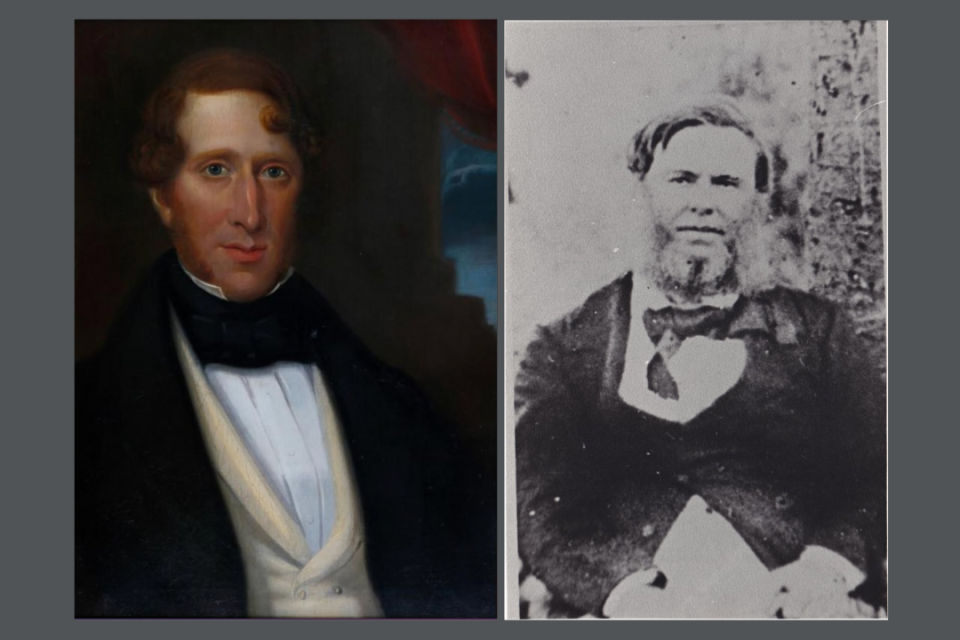
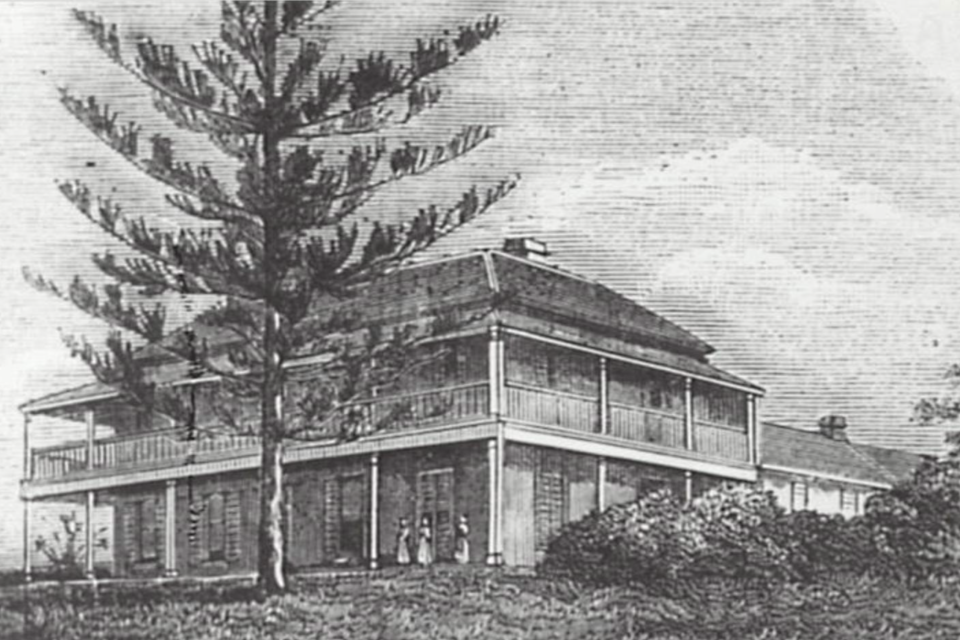

But despite mostly living elsewhere than Illawarra, Robert Pitt Jenkins Esq maintained his local connections by having married at Wollongong Miss Mary Louisa Adelaide Plunkett, eldest daughter of Captain Plunkett, the police magistrate of Illawarra.
That was until the married couple took a trip to England in 1859 and their ship, the Royal Charter, was tragically wrecked off the coast of Wales causing the death of 450 people including Mary and Robert Pitt Jenkins.
Earlier, Jemima Jenkins and son William had turned their huge estate into clearing leases. Some families taking up these leases did well growing crops and grazing cattle on the land they cleared – such as the McCauley, Hegarty and Madden families – but others did not.
After his mother Jemima died in 1842, William Warren Jenkins became the Lord of the Berkeley Estate.
Frank McCaffrey described the Berkeley Estate thus: “The best of everything. On race days and show days a drag, four well-groomed horses, coachman and footman, left for the scene of pleasure. Picnic parties were formed under the ti-trees and honeysuckle tree clumps. Yes, everything was carried out in a big way by the Jenkins. It has been said that much of this pomp was kept up by means of free convict labour in the earlier times. In those bad old days, good, brave men were compelled by the military authorities to take off their hats to these lordlings and their families.”
But even the fabulous Berkeley House suffered a tragic fate.
Because the boundary between the Jenkins’ Berkeley estate and the neighbouring Waldron family’s Spring Hill property to the north was said to be poorly defined on its Allan’s Creek boundary, a long dispute ensued.
Creeks can change course and so the dispute went on for decades and was only resolved after the death of William Warren Jenkins in 1884 when the Waldron family took the opportunity to acquire the land on which Berkeley House stood.
Seemingly, just to spite the descendants of the Jenkins family, Harry Waldron then chose not to live there.
The house eventually fell into such complete disrepair that it was little more than a ruin when it was demolished by Harry’s daughter about 1939.
Apparently it’s not easy being rich – or so it would seem at least way back then.









